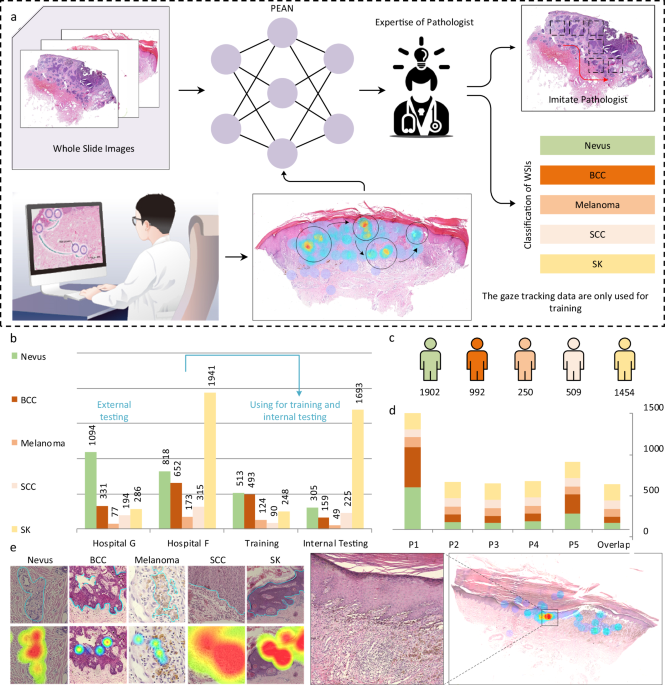Africa Blockchain Report 2025: Blockchain's Multifaceted Role in Economic Development
 by Rob Downes, Head of Digital Assets, Absa CIB
by Rob Downes, Head of Digital Assets, Absa CIB
The newest blockchain activity across Africa is highlighting the dynamism of this technology, with use cases emerging that demonstrate exciting new developmental opportunities beyond its crypto transaction roots. As South Africa prepares to host the first G20 summit in Africa, a key theme set to be discussed throughout both the B20 (Business20) and G20 task teams is inclusive digital development. We’ve already seen announcements from the G20 Task Force on Artificial Intelligence, Data Governance, and Innovation for Sustainable Development stating their priorities, with data governance, quality, privacy, and security top of mind to ensure new technologies are harnessed for improved economies, and better lives.
So in a year where blockchain-focused venture capital (VC) in Africa outpaced all-sector venture capital, as revealed in Absa’s recently released 4th edition of the African Blockchain Report, the technology must remain a central part of such conversations.
Blockchain specific investment activity has shown resilience, and the data indicates investor appetite in digital infrastructure solutions is growing. International (and local) investors are noticing the African entrepreneurial spirit, investing in markets where talent and skills in tech sectors are growing. This means even greater opportunities to leverage the technology (and the institutions that embed it in their systems) to help build stronger, more sustainable African economies.
AI and Blockchain Revolutionising Digital Economies
In recent months, we’ve seen a fusion of both AI and blockchain technologies – a development that has attracted both proponents and detractors. However, AI has been proven to enhance blockchain’s capabilities by providing predictive analytics, automating processes, and improving decision-making. In financial services, the rich data that exists on businesses and individuals from traditional sources (bank accounts and books) can be combined with new sources (digital wallets, mobile money) to create new models for assessing risk and therefore build access to finance and credit, especially for those who have been under-banked or unbanked previously.
This is an essential way of enabling digital and financial inclusion, as more people and business can access credit, but is also beneficial for banks who can monitor and predict defaults using AI tools and step in to help before it’s too late.
It certainly isn’t farfetched to see a future world where digital money lives on blockchains, with AI tooling monitoring real time activity and patterns to detect and prevent fraud, money laundering and terrorist financing, and money transfers happening seamlessly when pre-agreed conditions are met. Banks are already using both these super technologies but combining them will increase security and trust across all financial processes, it’s surely just a matter of time before we see it happening at scale.
Meanwhile, the 2025 report has shown unique, purpose-led blockchain companies are attracting funding to develop important financial services: crypto payments across various nations, remittance and credit-building for Africans and the diaspora, trade access for SMEs (small and medium enterprises), and even the tokenisation of assets to make them more accessible investment products.
Enabling Supply Chains and Intra-African Trade
It’s well understood that blockchain provides an immutable ledger that records every transaction and movement, fostering transparency and reducing inefficiencies. Therefore, harnessing this transparency in the complex process of International Trade and Supply Chains is a huge opportunity. In the realm of cross-border payments and trade, the African Continental Free Trade Agreement (AfCFTA) aims to integrate a market valued at over $3.4 trillion.
Yet, intra-African trade currently represents less than a quarter of total trade volumes on the continent. By leveraging stablecoins and tokenized trade finance, financial institutions can reduce transaction costs, improve liquidity for small and medium-sized enterprises, and bolster regional economic integration.
Outside financial services, blockchain technology is already unlocking supply chains – Hyundai and DP World are just two examples of organisations using blockchain, monitoring carbon emissions through the supply chain and tracking and tracing cargo all over the world. Within organisations, blockchain can replace paper-based processes with digital procedures, but if ecosystems can work together to create trust across full end-to-end value chains, the efficiency unlock could be profound. Through leveraging the trust and immutability of blockchain networks, combined with auto executing smart contracts once a party’s obligations are complete, automation and removing friction in supply chains are obvious opportunities to pursue.
Blockchain Transforming Financial Market Infrastructure
It isn’t just products and services that will be enhanced with blockchain technology, new financial market infrastructures will evolve – and have already. Blockchain’s decentralised nature and immutable records enhance the security and efficiency of financial transactions, with enhanced trust and shared data through cryptographically signing and programmable smart contracts. This means intermediaries which currently provide services across the financial ecosystem may no longer be necessary, which could help reduce costs and speed up services. The relative affordability of setting up and scaling blockchains can accelerate this shift and move away from the traditional technology stacks run for existing financial market infrastructure too.
Through accessing regulatory nodes, there is also the opportunity for regulators to be able to directly monitor transactions in real time instead of relying on banks and other market participants to send reports and data which are then ingested and reviewed, meaning greater power to identify and prevent transactions that could be fraudulent or illicit – in real time.
Whether you’re a believer of decentralisation or a believer that blockchain technology can offer new centralised infrastructure, there’s no doubt that increased peer to peer transactions are already happening and will continue to proliferate on blockchain technology – especially without intermediary oversight bodies.
Securing Sustainable Food Systems and Agriculture
A once greatly underpromoted use of the technology – namely in the agricultural sector – is also finally gaining traction: traceability for farm-to-fork. Consumers are increasingly wanting to understand what they eat, and leveraging blockchain to ensure transparency and traceability in food production and distribution enables this easily. Blockchain lets farmers record and share data about their produce, from planting to harvesting, ensuring authenticity and quality. But it’s not just about traceability either, blockchain and AI solutions can help improve crop yields, and provide data for a range of services, from veterinary and insurance to applying for credit facilities.
The opportunities and use cases are wide and varied, which is why we believe it’s an area that sure to grow in the years to come and especially for small holding farming across Africa.
In the coming months, as G20 and B20 recommendations are implemented and new regulatory frameworks emerge to keep pace with recent advancements, we will likely see even more novel uses of blockchain technology. However, it is essential that financial institutions like our own continue to actively promote and enable the most sustainable and purpose-driven uses of the technology.










